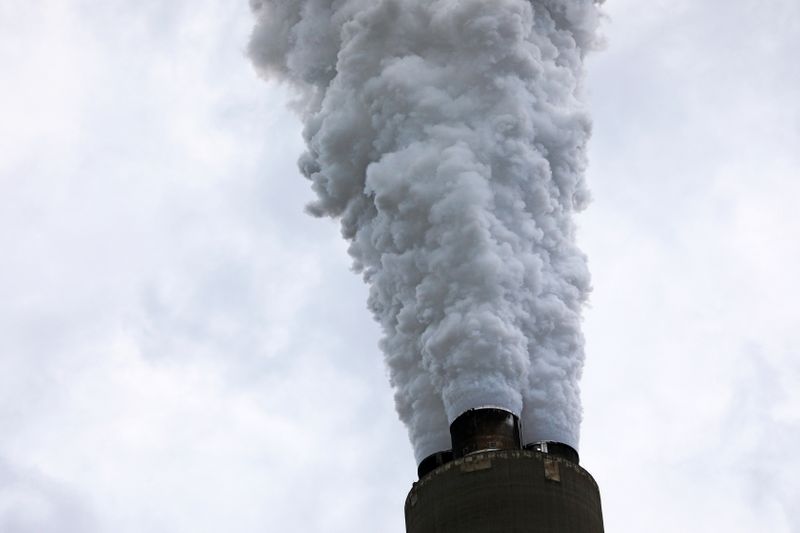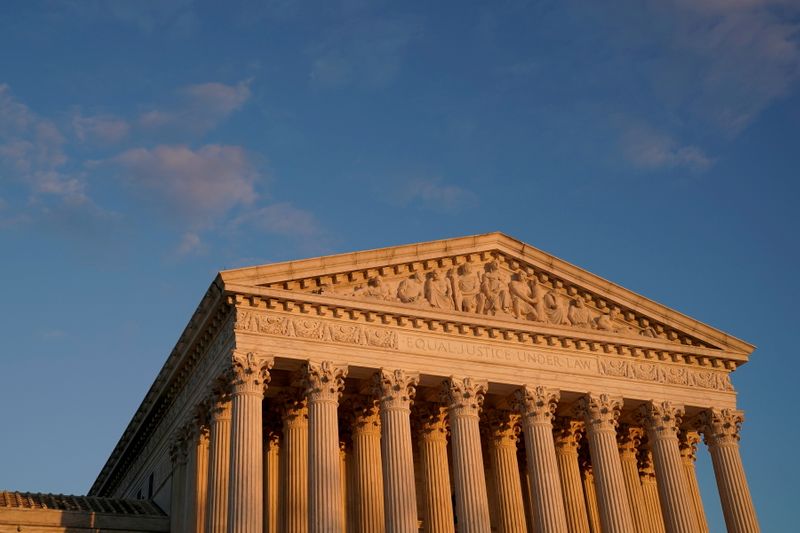By Lawrence Hurley and Valerie Volcovici
WASHINGTON (Reuters) -The U.S. Supreme Court on Friday agreed to hear a bid by states, including coal producer West Virginia, and industry groups to limit federal power to use the landmark Clean Air Act to regulate carbon emissions from power plants.
The court's decision to take up the case could complicate efforts by President Joe Biden's administration to issue new and more stringent regulations aimed at reducing greenhouse gas emissions.
The announcement came two days before Biden arrives in Glasgow, Scotland, for the UN COP26 climate summit, where he had planned to reassert U.S. leadership on climate change. His predecessor Donald Trump withdrew Washington from the Paris climate agreement.
The high court will hear a case brought by 20 states and various industry groups, including coal interests, to review a ruling https://www.reuters.com/article/us-usa-climate-powerplants/u-s-court-deals-final-blow-to-trump-epas-clean-power-rule-replacement-idUSKBN29O2BO by the U.S. Court of Appeals for the District of Columbia Circuit to strike down a Trump-era rule intended to constrain regulation of carbon emissions from power plants.
The appeals court had ruled against Trump's Affordable Clean Energy (ACE) rule which was challenged by states and groups that supported the Clean Power Plan of former President Barack Obama. That rule would have given the Environmental Protection Agency power to regulate carbon dioxide emissions mainly from coal-fired power plants.
In 2016, the Supreme Court blocked Obama's regulation - the centerpiece of his strategy to combat climate change - from taking effect but never ruled on its lawfulness.
“We are extremely grateful for the Supreme Court’s willingness to hear our case," said West Virginia Attorney General Patrick Morrisey, who led the lawsuit.
EPA Administrator Michael Regan said on Twitter (NYSE:TWTR) that the agency "got to work" after the DC Circuit struck down the Trump rule and "will continue to advance new standards to ensure that all Americans are protected from the power plant pollution that harms public health and our economy."
The court will likely hear the four combined cases in its current term, with a ruling due by the end of June.
On Thursday, Biden secured a deal with Congressional Democrats around a $555 billion framework to carry out elements of his climate agenda that he had hoped would boost U.S. credibility ahead of the COP26 talks.
But tough intraparty negotiations led Democrats to drop a key clean-electricity proposal that would have slashed power plant emissions by encouraging a rapid shift to renewable energy. Losing that Clean Electricity Payment Program put pressure on the EPA to come up with new power plant regulations.
The Supreme Court case will delay that effort.

"As a practical matter, this will almost certainly prevent the Biden Administration from moving forward with a new rule to regulate carbon emissions from the power sector," said Jeff Holmstead, a former assistant administrator and lawyer at Bracewell.
Ben Levitan, a senior attorney at the Environmental Defense Fund, which is a party to the case, said the group will "firmly defend EPA’s authority and responsibility to protect American families from the clear and present danger of climate pollution emitted by power plants.”
